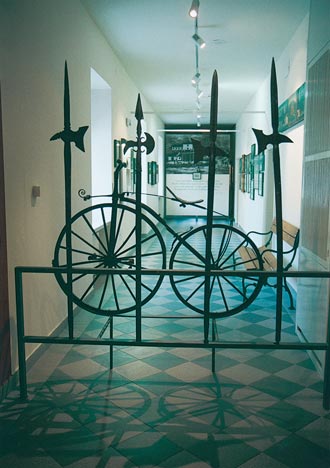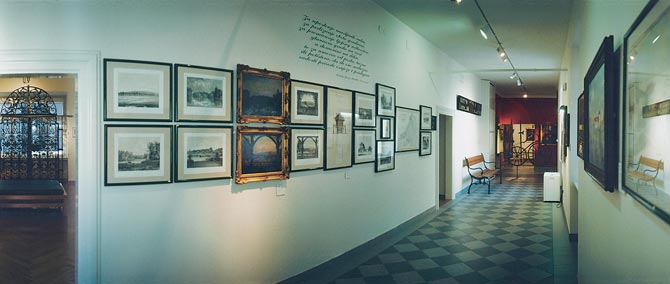Permanent Display 25. Parks and Walks
 Because of the felling and clearing of the centuries-old oak forests (English oak), on a grange east of the city the first Zagreb park was set up. It was opened with all due pomp in 1774. In honour of bishop Maksimilian Vrhovac, who was the prime mover of the idea of making a park in the enlightenment and romantic spirit of the time, it bore his name, Maksimir.
Because of the felling and clearing of the centuries-old oak forests (English oak), on a grange east of the city the first Zagreb park was set up. It was opened with all due pomp in 1774. In honour of bishop Maksimilian Vrhovac, who was the prime mover of the idea of making a park in the enlightenment and romantic spirit of the time, it bore his name, Maksimir.
In the time of his successor, Bishop Aleksandar Alagović, the English idea of making landscaped parks was to prevail. This was carried out by Bishop Juraj Haulik, the real creator of a park that bore the name Jurjaves in his honour. By that time most of the facilities for rest and recreation had already been built, the park had been adorned with sculptures, and, in addition, the horticultural work was finished. With the opening of the great episcopal park it was wished, in the progressive spirit and the desire for the general good, to make it accessible to the public, to have it, above all, serve the people as a whole.
Bishop Alagović too opened his romantic English garden by the Nova Ves summer residence for walking in, and when the new park, the Bishop’s Garden was completely arranged, it was available for walking in for those who had passes. During the time of Bishop Haulik it was opened for the whole of the community, and on Sundays there was a band playing in the park.
The citizens also walked on the well set-out municipal walkways in the Upper Town, on the Southern and Northern Promenades, and by the end of the century walks were arranged in Zrinski Square and in Tuškanac.

Željka Kolveshi

